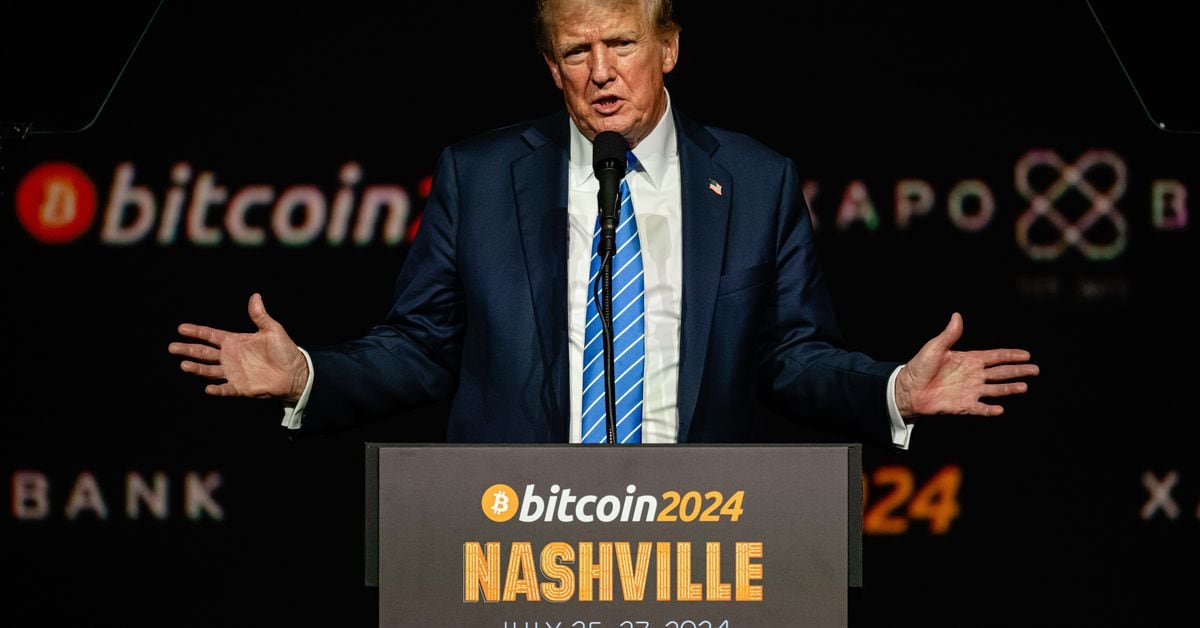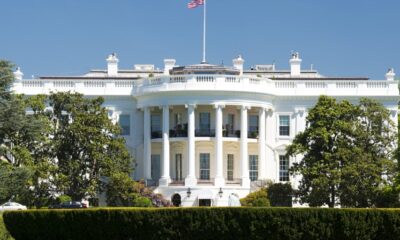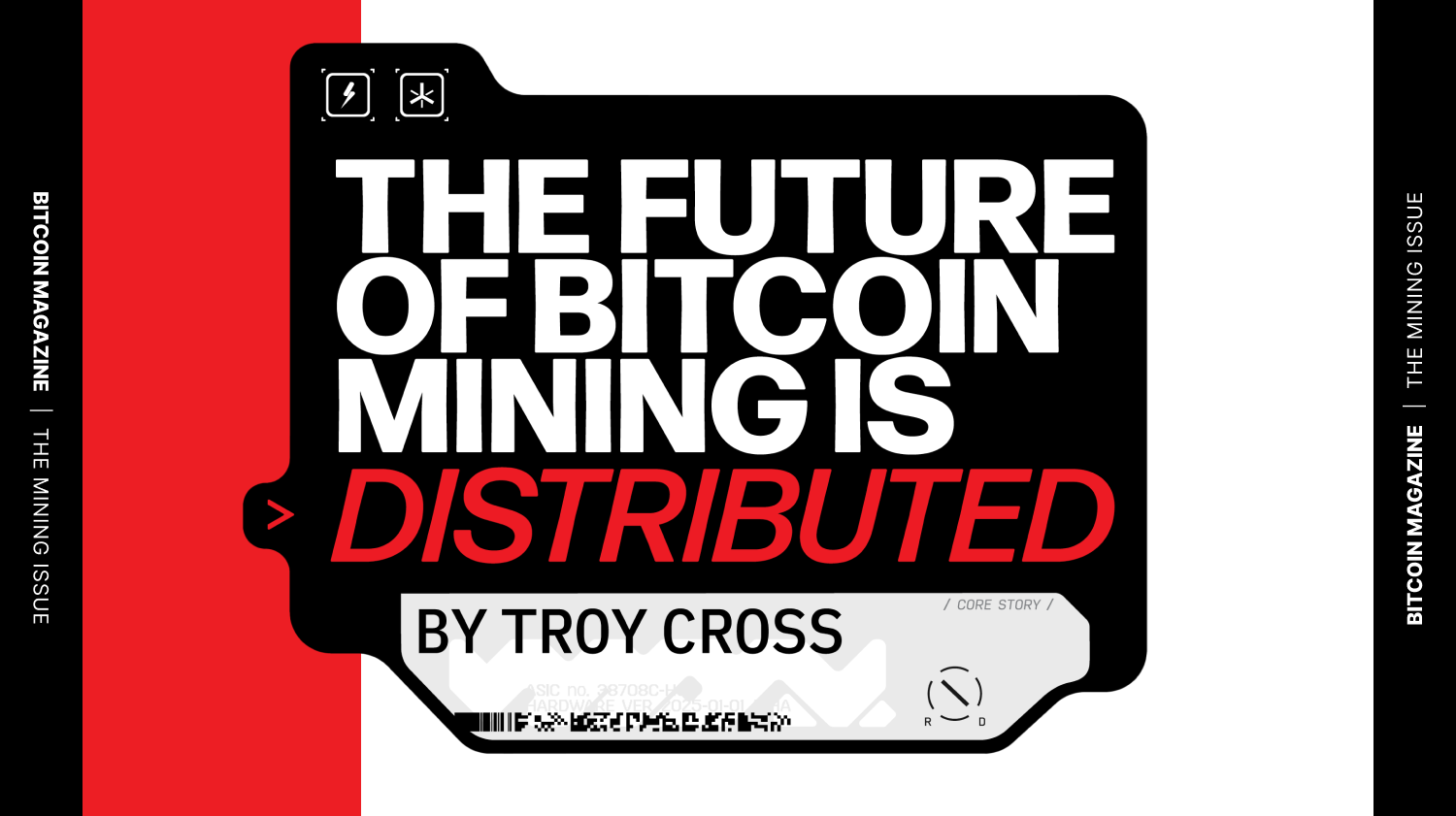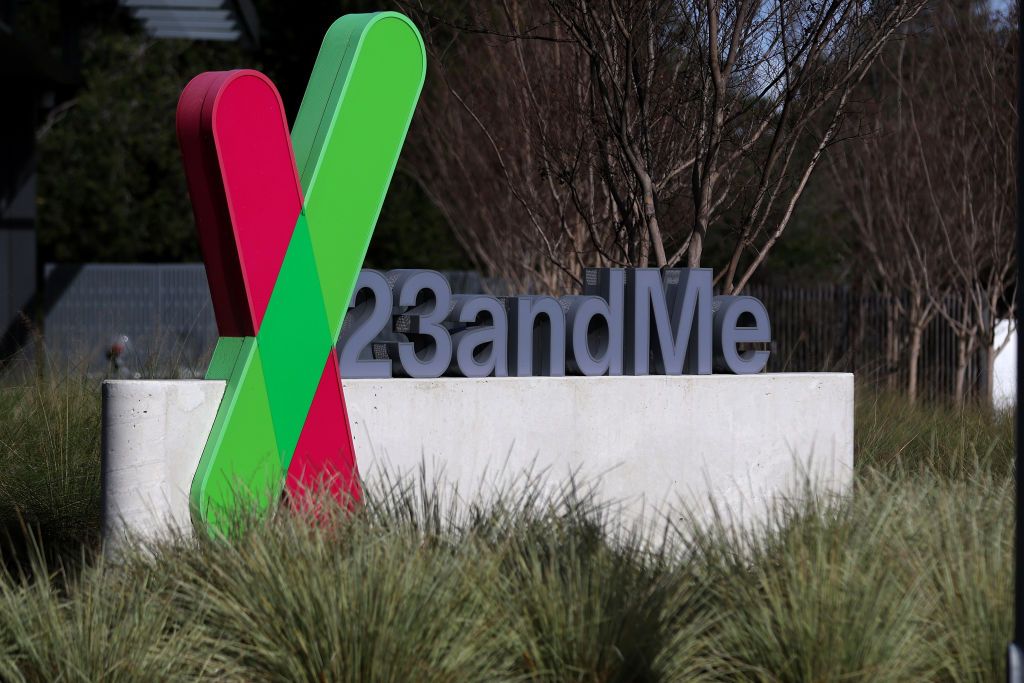Opinion
Crypto’s Big Trump Gamble Is Risky
Published
5 months agoon
By
admin

He stands on a stage at the Bitcoin Conference, in Nashville, and says how much he likes crypto people. He announces a Bitcoin Strategic Reserve. He promises to free Ross Ulbricht. He hands out burgers at PubKey, in NYC. He even forms his own DeFi project, World Liberty Financial, complete with an insider-y governance model (what better way to signal one’s fidelity to crypto than that?)
Trump says and does all the things crypto wants to hear and he attracts millions in donations as a result. The loudmouths go to bat for him, culture warriors in performative hatred. He occupies political space that the Biden Administration and the Harris campaign could have occupied if they weren’t so craven to the Warren Wing. He says all the right things, because Trump is the master of saying what people want him to say. He fits perfectly with crypto’s goals, because his politics are adaptable to any situation and crypto was desperate for a friend.
I’ll confess that all this makes me personally uncomfortable, not because I have any great love for Kamala Harris, but because Trump has a long track record of being a fair-weather friend. He could just as easily take an entirely opposite view of crypto, if it suits him, and he has. I’m worried about crypto’s embrace of Trump because I find it hard to believe that Trump shares principles that attracted me to crypto.
Source link
You may like


Crypto Trader Unveils Best-Case Scenario for Bitcoin To Avoid 2021-Style Market Meltdown


Bitcoin ETFs post $172m in weekly outflows amid market bloodbath


Trump Ally Bill Ackman Calls for 90-Day Pause on US Tariffs as Crypto Sinks


Ethereum price Tags $1,500 As Global Stock Market Crash Triggers Circuit Breakers


Bitcoin Trades Above $79K as Asia Markets React to Trump Tariffs


Memecoin platform Pump.fun brings livestream feature back to 5% of users

In a recent video interview by Bitcoin Magazine, Troy Cross, Professor of Philosophy and Humanities at Reed College, delves into the topic of his latest article for Bitcoin Magazine’s “The Mining Issue,” titled “Why the Future of Bitcoin Mining is Distributed.” Watch the full discussion here.
In the interview, Troy explores the centralization vectors in Bitcoin mining and presents a compelling argument for the decentralization of hashrate. Despite the economies of scale that have given rise to mega mining operations, he highlights a critical—and potentially economic—imperative for distributing mining power, offering insights into the future of Bitcoin’s infrastructure.
The following article is featured in Bitcoin Magazine’s “The Mining Issue”. Subscribe to receive your copy.
Intro
When Donald Trump said he wants all the remaining bitcoin to be “MADE IN THE USA!!!” Bitcoiners cheered. Mining is good, right? We want it to happen here! And indeed, the U.S. is well on its way to dominating the industry. Publicly listed U.S. miners alone are responsible for 29% of Bitcoin’s hashrate — a percentage that only seems to be growing. Pierre Rochard, vice president of research at Riot Platforms, predicts that by 2028, U.S. miners will produce 60% of the hashrate.
But let’s be honest: Concentrating most Bitcoin mining in the U.S., especially in large public miners (as opposed to a Bitaxe in every bedroom), is a terrible idea. If the majority of miners reside in a single nation, especially a nation as rich and powerful as the U.S., miner behavior would be driven not only by Satoshi’s well-designed incentives but also by the political whims of whatever regime happens to be in power. If Trump ever gets what he said he wants, the very future of bitcoin as non-state money would be at risk.
In what follows, I outline what a nation-state attack on bitcoin through the regulation of miners would look like. Then I review the incentive structures that have pushed Bitcoin mining to large U.S. data centers under the control of a handful of companies. Finally, I make the case that the future of Bitcoin mining does not resemble its recent past. Bitcoin mining, I think, will revert to a distribution closer to its early days, where miners were as plentiful and as geographically dispersed as the nodes themselves.
I also argue that despite some Bitcoiners’ enthusiasm for “hash wars”, and despite political chest-thumping, nation-states actually have an interest in a future in which no country dominates Bitcoin mining. This “non-dominance dynamic” sets bitcoin apart from other technologies, including weapons, where the payoff for dominating drives nations in a competition to corner the market first. But with Bitcoin mining, dominating is losing. When nation-states come to understand this very unique game theory, they will help defend it against miner concentration.
The Attack
If the U.S. had the majority of hashrate, how could bitcoin be attacked?
With a single directive from the Treasury Department, the U.S. government could order miners to blacklist certain addresses from, say, North Korea or Iran. The government could also forbid miners from building on top of chains with forbidden blocks, i.e., all miners would be forbidden from adding a block to a chain containing an earlier block with a censored transaction. Large U.S. miners — public companies — would then have no choice but to follow the law; executives don’t want to go to prison.
What’s more, even miners outside the U.S., or private miners within the U.S. choosing to flout the law, would have to censor. Why? If a rogue miner snuck a forbidden transaction into a block, law-abiding miners would have to orphan that block, building directly atop of earlier, government-approved blocks. Orphaning the block would mean the rogue miner’s own reward, their coinbase transaction, would be orphaned as well, leaving the miner with nothing to show for their work.
What would happen next is unclear to me, but none of the outcomes are ideal. We would have a fork of some kind. The new fork could use a different algorithm, making all existing ASICs incompatible with the new chain. Alternatively, the fork could keep the existing algorithm, but manually invalidate blocks coming from known bad actors. Either option would leave us with a government-compliant bitcoin and a noncompliant bitcoin, where the government-compliant fork would run the original code.
When I’ve heard Bitcoiners discuss these scenarios, they usually say everyone would dump “government coin”, and buy “freedom coin”. But would that really happen? Maybe we, the readers of Bitcoin Magazine, freedom seekers, and cypherpunk types, would dump the censored fork bitcoin for the new freedom variant. But I doubt that BlackRock, Coinbase, Fidelity, and the rest of Wall Street would follow suit. So the relative economic value of these two forks, particularly another five to ten years into the future, is far from clear to me. Even if a noncompliant fork of bitcoin were to survive and retain much of its economic value, it would be weakened economically and philosophically.
Now consider the same attack scenario but with well-distributed hashrate. Suppose U.S. miners represent only 25% of the hashrate. Suppose the U.S. government forces miners to blacklist addresses, and worse, orphan any new blocks containing transactions with blacklisted addresses. This is still bad. But the 75% of miners outside of the reach of U.S. law would continue to include noncompliant transactions, so the heaviest chain would still include noncompliant blocks. If there is a fork in this distributed-mining scenario, it is the government-compliant bitcoin that would have to fork away and abandon proof of work for social consensus.
This is still a dark scenario. Custodial services in the U.S. may be forced to support the new compliant bitcoin, and that would pose an economic threat, at least for a time, to the real bitcoin. But if the mining network persists outside the U.S. and has the majority of hashrate, this seems more like the U.S. opting out of bitcoin than the U.S. co-opting bitcoin, as it could with hashrate dominance.
How Did Bitcoin Mining End up in Large U.S. Data Centers?
Bitcoin mining’s evolution is a case study in economies of scale.
Let’s go back to the beginning. What we think of as the distinctive functions of miners — collecting transactions into blocks, doing proof of work, and publishing their blocks to the network — were all part of Satoshi’s descriptions of what nodes do. There were no distinctive “miners”; every node could mine with the click of a button. So in those early days, mining was as decentralized as the nodes themselves.
But CPU mining was quickly displaced by mining on graphics cards and FPGAs, and then from 2013 onward, by ASICs. Mining remained a vestigial option on nodes for many years, until in 2016 Bitcoin Core finally dropped the pretense and removed it entirely in version 0.13.0 of the software. Once mining took on a life of its own, apart from node running, using its own specialized equipment and expertise, it started to scale. This was entirely predictable.
In The Wealth of Nations, Adam Smith describes a pin factory employing only 10 people that produces 48,000 pins per day, where each employee, all on their own, could make at most 1 pin per day. By specializing in one stage of the pin-making process, developing tools for each subtask, and combining their efforts sequentially, the employees produced far more pins with the same amount of labor. One way to think about this is that the cost of increasing production by one pin is negligible for a factory already making 48,000, having already sunk cost into the equipment and skills; it would only require a slight addition of labor and materials. But for someone producing one pin a day, the marginal cost of adding one pin to production doubles.
Mining, once freed from the CPU, had many features that lent themselves to efficiencies of scale just like making pins in a pin factory. ASICs are specialized tooling, like pin-making machines. So are the data centers designed for the special power density and cooling needs of those ASICs. Likewise, compared to mining in one’s basement, mining in a multi-megawatt commercial facility spreads the same fixed costs over many more mining units. Some examples of relatively scale-indifferent expenses encountered by miners include:
- Power expertise
- Power equipment
- Control systems expertise
- ASIC repair expertise
- Cooling expertise
- Cooling facilities
- Legal expertise
- Finance expertise
In a larger operation, not only are fixed costs absorbed by a larger number of revenue-producing machines, but one also gains bargaining power with suppliers and labor. Scaling up from one’s basement to the local commercial park, one gets a better price on electricity. Scaling up from an office park presence to a mega-center, one begins to employ power specialists who draw up sophisticated contracts with power suppliers and financially hedge against price movements. Sending one machine off for repair whenever it breaks down costs more — per repair incident — than simply hiring a repair specialist to find failing ASICs and fix them on-site, provided the scale of operation is large enough. And when dealing with ASIC manufacturers, pricing is relative to the size of the order. Major players can drive a harder bargain, squeezing smaller miners like Walmart squeezed main street shops by negotiating lower prices for their wares.
Economies of scale should surprise no one, as they apply to some degree to almost all manufactured goods. The benefits of size naturally explain how mining went from something I did with graphics cards in my basement 13 years ago to facilities approaching 1 GW today.
But that is why mining has scaled up, not why it has concentrated in the U.S. and in large public companies. To understand the latter requires noticing two more factors. The first is another good that scales: financing. Large public companies can raise cash through diluting their stock or issuing bonds. Neither of these fundraising mechanisms is available to a small-scale miner. True, they can borrow, but not on the same terms as a large company, and the U.S. has the deepest capital markets in the world. Secondly, the U.S. has “rule of law”, a relatively stable legal system, reducing the risk that, for instance, the state would seize a mining operation or that regulators would arbitrarily halt operations.
The other feature that drew mining to the U.S. in the past few years was the availability of power infrastructure. After China banned Bitcoin mining, it became profitable to mine virtually anywhere in the world with basically any ASIC. But the U.S. had available power infrastructure, much of it in the rust belt, left behind when U.S. manufacturing made an exit for China. The U.S. also had abundant power in West Texas, stranded wind and solar energy incentivized by subsidies but insufficiently interconnected to East Texas and to the rest of the country. In the wake of the China Ban, miners quickly occupied the underutilized rust-belt infrastructure and took advantage of the abundant power and cheap land to build data centers in West Texas.
The ability to raise and deploy large amounts of funding is a striking advantage, and one that compounds with others, given Bitcoin mining’s fixed, global reward. With ample funding from the markets, the largest public Bitcoin miners were able to secure the newest, most efficient, and most powerful ASICs as well as negotiate the best power contracts, hire the best experts on firmware and software, and so on. Not only did this put smaller miners at a disadvantage, but the large miners could then boost global hashrate significantly, driving up difficulty. When the price of bitcoin fell, with a debt-fueled ASIC fleet already deployed, margins shrank to almost nothing for miners that did not have the advantages of scale. Even a public miner in bankruptcy could continue running their massive fleet of machines during restructuring, driving out their smaller competitors while navigating the legal system.
Thus did mining grow from hobbyist scale to gigawatt scale, and thus did it settle in America. Mining is a brutally competitive commodity business, and the efficiencies afforded by scale proved decisive, especially when funded by debt and dilution.

Why Mining Will Be Distributed and Small-Scale Once Again
Just as there are economies of scale, there are also diseconomies of scale, where unit production costs actually increase with size at a certain point. For instance, it’s obvious why there isn’t just one gigantic food factory that feeds everyone in the world every meal. Yes, there are efficiencies in the factory production of food — witness the average farm size over the past century — but there are limits too. Fresh ingredients must be shipped to a factory and the final product then must be shipped to consumers. Both the inputs and the outputs of a food factory are perishable and heavy. Shipping costs to and from a single factory would be exorbitant, and quality would suffer in comparison to more local markets with fresher food. Similar factors explain why sawmills and paper mills are near forests, and why bottling plants are near fresh water.
But shipping bitcoin costs nothing: It’s a simple matter of making a ledger entry on the Bitcoin blockchain itself, which takes mere seconds. And although I like to brag about mining our artisanal Portland bitcoin, there are actually no local flavors of bitcoin that differ depending on where it’s made. All bitcoin is qualitatively identical. This is all the more reason global bitcoin production should centralize to the single, very best place to make bitcoin.
There’s just one problem with centralizing all mining into a single plant: Bitcoin mining is energy-intensive. In fact, it already uses more than 1% of the world’s electricity. Electricity is the primary operating cost of mining bitcoin, often representing 80% of operating expenses. And unlike bitcoin, electricity does not travel well. Not at all. In fact, electricity is a lot like food that perishes instantly and requires expensive, specialized infrastructure to transport. For electricity, that infrastructure is wires, transformers, substations, and so on — all the elements of an electrical grid.
Shipping electricity is actually much of the cost of electricity. What we call “generation” is often a minority of the total cost of electricity, which also includes “transmission and distribution” charges. And while the cost of generation continues to fall with advances in technology and manufacturing efficiency for solar panels, grid investments are only becoming more costly. So it makes no sense to ship electricity around the globe to a single bitcoin factory. Instead, bitcoin factories should sit at the sites of generation where they can avoid transmission and distribution costs altogether, and then ship the bitcoin from those sites for free. This is already happening, in fact. It’s called putting your Bitcoin mine “behind the meter”.
Mining companies will play up their differences: firmware, pools, cooling systems, finance, power expertise, management teams. But at the core of what they do, there is little to separate different mining companies from one another: The product is identical, it costs nothing to ship, and they use exactly the same machines (ASICs) to convert electricity to bitcoin. Differences in electricity cost largely determine which miners will survive and which will not. In a prolonged period of price stagnation, or even a steady rise, only those companies with access to the cheapest electricity will be operating.
The master argument, then, for a global distribution of miners in the future goes as follows. First, Bitcoin mining, by design, is driven to the cheapest energy in the world. Second, cheap energy is distributed around the world, and also “behind the meter”. So, third, mining will be geographically distributed and behind the meter too.
For the sake of argument, imagine Donald Trump’s wish is granted and all mining is in the U.S. and that mining is in equilibrium, i.e., mining margins are extremely tight. If someone finds power elsewhere in the world that is cheaper than the average U.S. miner’s, and deploys ASICs there, hashrate will increase and some U.S. miners (those with the highest expenses) will go out of business. This process will repeat until mining only happens on the cheapest energy in the world.
Cheap energy takes different forms: gas in the Middle East and in Russia; hydro projects in Kenya and Paraguay; solar in Australia, Morocco, and Texas. The reason energy is distributed is that nature has distributed it. Rain and elevation changes (i.e., rivers) are everywhere. Fossil fuel deposits are everywhere. The wind blows everywhere. The sun shines almost everywhere.
In fact, the global distribution of energy is somewhat guaranteed by the solar path around the planet. As the sun shines most brightly, its energy is bound to be wasted by solar-powered systems, as power infrastructure is never designed for peak generation. I predict that in the future, a substantial portion of the hashrate will follow the solar path, with machines using the excess solar either overclocking during that period or, if they are older and otherwise unprofitable, turning on only for that brief period when the system is producing more electricity than the grid demands.
The master argument above can be slightly modified to reach other conclusions about the future of mining. I also think, for example, that there is abundant cheap power at a small scale, and a limited amount of cheap power at a truly massive scale (100 MW+). It follows that, provided Bitcoin mining continues to grow, small-scale mining will make a return and the trend toward megamines will reverse as large-scale sources of cheap power disappear.
To see why cheap power exists mostly at the small scale, we could go on a case-by-case basis. For instance, we could look at why flare-gas waste happens in a distributed small-scale way, and why solar inverters are undersized, leading to clipped power all over the system. But I would rather think about the broader principle. Where we have cheap power at scale it is a massive mistake. For instance, the mistake may be building a dam or nuclear plant no one really needed. Massive mistakes are limited in number: They’re expensive! There is a limit to fiat stupidity.
Smaller-scale mismatches of supply and demand are going to be more common, all else equal. If gas production at an oil well is big enough, for instance, it will make sense to build a pipeline to ship it out; if it’s relatively small, it will not make sense to build the pipeline and the gas will be stranded. Likewise for landfills. The largest landfills have generators and are grid-connected, but the smaller landfills often fall short of even collecting their methane, let alone generating electricity with it and feeding that electricity to the grid. The same is true of dairy farms.
Further, bitcoin is not the only form of energy-intensive computation. If there are large quantities of cheap energy, other forms of computation will take up residence there and, being less sensitive to the price of electricity, they will outbid bitcoin miners. Those other forms, at least at present, do not scale down as well as bitcoin. It follows that the days of mining on supercheap, large-scale power are numbered. On the other hand, if you are mining bitcoin by mitigating flare gas on a desolate, windswept oil patch far from a pipeline, there is virtually no chance anyone will outbid you in order to do AI inference at your location. The same is true if you are mining on overprovisioned home solar. Small-scale energy waste is far less appealing to competitors but usable for Bitcoin miners. Mining can scale down enough to reach into these crevices of energy, whereas other kinds of energy consumers cannot.
Another version of the argument above trades on the distributed demand for waste heat. All of the electrical energy entering a bitcoin miner is conserved and leaves the miner as low-grade heat. With this waste energy, miners are heating greenhouses, villages, and bathhouses. But heating needs can typically be met with a small deployment of machines. An ASIC or two can heat a home or a swimming pool. Yet using waste heat to substitute for electrical heating improves the overall economics of mining. Other things equal, a miner selling their heat will be more profitable than a miner not selling their heat. So here is another argument that mining will be globally distributed and smaller scale: The demand for heat is globally distributed — though greater in the far north and south — and at a very limited scale.
As I’ve said, I believe Bitcoin mining will be driven to the world’s cheapest energy. But this is the trend only if the price of bitcoin rises slowly. In an aggressive bull market — and we have seen several — Bitcoin miners will use any energy available, wherever they can plug in machines. If bitcoin’s price rockets to $500,000, all my models are destroyed. But in this bullish scenario, too, mining becomes globally distributed, this time not because the cheapest power is distributed but because available power is distributed. Bitcoin at $500,000 means all ASICs are profitable on any power, and the U.S. alone does not have the infrastructure to handle that kind of demand shock even if it wanted to. So, bitcoin will be distributed either way.
It is worth noting, too, that high-margin times are short-lived, as ASIC production will always catch up, in the pursuit of profits, driving margins back down. So, over the long term, the distribution of Bitcoin miners will still be determined by the distribution of the world’s cheapest energy.
For my arguments to work, the diseconomies of scale must outweigh the economies of scale listed above. To determine the balance of these two requires nothing less than a deep dive into the spreadsheets of each kind of mining business, which would be inappropriate here.
Suffice it to say I believe that if the difference in the cost of electricity is great enough, then it outweighs everything else. But I can’t pretend to have provided anything like a proof here. These are the broad strokes; the finer details remain an exercise for the reader.
Geopolitics
Thus far, I’ve contemplated miner incentives without regard to nation-states themselves. We know that just as some countries are buying bitcoin, others are mining bitcoin with their energy resources. Nation-states have incentives independent of anything Satoshi contemplated. For instance, Iran may mine bitcoin in order to monetize its oil because sanctions make selling it on the open market impossible, or expensive at any rate. Russia may mine for similar reasons. Such nation-state actors could “mine at a loss” relative to a miner paying for their own power, because the nation-state’s cost of energy is subsidized by the taxpayer. Their mining at scale, in turn, could make it less profitable for everyone else, and push marginally profitable miners out of business.
I do not see nation-state mining as ultimately concentrating hashpower, however. As things stand, mining in Russia and Iran is actually good for bitcoin, as it checks the advance of mining by U.S. public companies, which dwarf them in scale. Moreover, if some nation-state begins to produce a disproportionate share of the hashrate, while bitcoin is an important piece of the global economy, I expect other nation-states with a stake in bitcoin’s success — or even large bitcoin holders — would also begin to mine at a loss in order to keep mining decentralized.
The game theory here is not intuitive. Rather than a competition to dominate, bitcoin is a game in which everyone wins when no one dominates and everyone loses when anyone dominates. For virtually every other technology or weapons system in the world, the best strategy is to achieve global dominance. Thus, we see a race to dominance in battery technology, chip manufacturing, drones, AI, and so on. This is called the “Thucydides trap” in foreign policy because it dictates a preemptive attack on a rising rival: The reward is immense for coming in first, and the loss is incalculable for coming in second.
But if you dominate Bitcoin mining, that is bad for Bitcoin mining, and therefore bad for bitcoin and therefore bad for you. As Bitcoin mining concentrates in one nation, everyone sees the possibility of an attack on the neutrality of bitcoin, which lies at the core of its value proposition. For instance, Russia might hold bitcoin to avoid the U.S. freezing its reserves, as the U.S. did with Russia’s fiat reserves upon their invasion of Ukraine. But if mining is concentrated in the U.S., Russia could not trust that their addresses wouldn’t be blacklisted by the U.S. Treasury Department. Russia, therefore, would dump its bitcoin for some other asset if it saw this threat arising. Miners in the U.S. would see their share of block rewards rise as they achieved dominance over other miners, but the value of their block rewards would drop as the price of bitcoin itself dropped. Other things equal, then, miners in the U.S. would not want Russians to stop mining and dump their bitcoin. U.S. miners should not want to “win”, at least not in this way. And if bitcoin is a meaningful enough part of the U.S. economy, the U.S. itself should not want its miners to win. Rather, if any nation approaches dominance, we should expect those heavily invested in bitcoin, including nation-states, to mine enough to prevent losses to their own investments.
Bitcoiners should hope that the USA will mine enough bitcoin that no country, including itself, mines a majority of it. That’s a terrible slogan for a campaign rally, and it doesn’t capture the imagination like “hash wars”. But as a Bitcoiner, it is the only rational preference one should have.

Disclaimer: Opinions expressed are entirely the author’s and do not necessarily reflect those of BTC Inc or Bitcoin Magazine.
Source link

For years, the crypto market has thrived on speculation, where excitement, hype and fleeting trends attract value instead of fundamentals. Investors have continually poured money into tokens fueled by viral moments, chasing rapid gains. Time and again, a select few of these investments soar to incredible heights, only to come crashing down. With over 33 million tokens in circulation, the competition to attract attention gets harder and harder and investor attention is ever more fleeting. But DePIN can change this. With compelling businesses attracting real customers and revenue built on well designed token economics, DePIN can set a new standard of fundamentals in crypto.
As our DePIN Token Economics Report outlines, Decentralized Physical Infrastructure Networks (DePIN) offer a number of compelling businesses with fundamental value. Unlike typical crypto projects driven by speculation, DePIN offers a different approach. It uses blockchain technology to support real-world infrastructure, creating tangible value and generating real revenue. Instead of relying on hype, it builds a financial system based on actual demand, making it a more sustainable and practical model.
Rather than resembling major crypto networks like Bitcoin or Ethereum, DePIN operates more like capital-light marketplaces such as Uber and Airbnb, but with key distinctions. While both models connect providers with customers without funding infrastructure, DePIN providers are compensated in tokens that can appreciate in value, akin to Uber drivers or Airbnb hosts receiving equity. Additionally, most DePINs sell to businesses which eliminates the need for massive marketing expenses required in building a consumer brand.
DePIN offers a compelling business model and, unlike memes that come and go, it is the beginning of crypto’s transformation into a mature, revenue-generating industry.
From Hype to Revenue-Driven Models
At its core, DePIN represents a paradigm shift. Traditionally, blockchain-based businesses have relied on hype to attract buyers. In the absence of traditional fundamentals, the industry cycled through endless metrics such as TPS, TVL, Telegram channel size, followers on X and many others. Many projects have attempted to build decentralized ecosystems. But, without real customers paying for services, they have largely functioned as economies fueled by speculation rather than external demand.
DePIN changes this by integrating blockchain technology with physical and digital infrastructure, creating compelling services that generate revenue. Whether it is decentralized cloud computing, wireless networks, mapping or storage solutions, DePIN projects offer services like traditional businesses and with customers who pay for usage. When combined with the correct token economics, it creates a sustainable financial model.
As DePIN generates growing revenue, it is likely to draw institutional investors who have long been skeptical of crypto’s reliance on hype and speculation. The projects that successfully correlate the token demand to actual business growth will not only survive the current market but also set the standard for the next generation of blockchain companies
The report also highlights one of the most compelling aspects of DePIN, the use of buy-and-burn, which removes the need to have an expanding pool of new buyers. Instead, these projects use a portion of their revenue to repurchase and burn tokens, permanently reducing supply and potentially driving long-term price appreciation similar to stock buybacks.
This approach is in stark contrast to most of crypto which relies on new buyers to sustain and grow their value.The buy-and-burn model ensures that as DePIN businesses grow and generate more revenue, their token ecosystems become more resilient to market fluctuations. Some DePIN tokens are already demonstrating this by decoupling from broader crypto market trends, proving that real-world adoption can lead to price stability and long-term investor confidence.
Aligning Incentives for Sustainable Growth
While DePIN offers significant potential, it also comes with challenges. One major concern is transparency, as most projects lack traditional financial reports, audits, or clear revenue statements. However, blockchain itself provides a solution — on-chain verification through buy-and-burn mechanisms allows for real-time financial tracking, giving investors a clearer picture of a project’s health.
Another challenge is customer adoption. Many businesses and consumers remain concerned due to crypto’s volatility. To address this, DePIN projects are introducing fiat payment options and stablecoin rewards, making it easier for everyday users to interact with these decentralized services without needing prior crypto or Web3 experience.
For DePIN to succeed, its incentive structures must be designed to keep all stakeholders — providers, users, and investors aligned. One way to achieve alignment is through staking mechanisms, especially in cloud-based networks where service providers lock up tokens as collateral to guarantee reliability. Projects like Filecoin and Fluence already use this approach, ensuring accountability while strengthening network security. Others, such as Render and Livepeer, take a different route by distributing a share of network revenue to token stakers, creating a system similar to dividends that rewards long-term commitment.
Governance will also be critical as DePIN projects decentralize. To prevent large token holders from short-term profiteering for quick gains, new governance models like quadratic voting and weighted staking are emerging. These frameworks help keep decision-making balanced, ensuring that projects remain sustainable and fair as they evolve.
DePIN isn’t just another blockchain investment vehicle, it is laying the foundation for real, decentralized infrastructure. While meme coins have shown that crypto can generate hype, they rarely create lasting value. In contrast, DePIN is developing businesses that can compete with centralized companies by focusing on real-world utility.
With token models backed by revenue, deflationary supply mechanics, and increasing interest from institutional investors, DePIN is redefining how blockchain networks should function. The projects that successfully address capital efficiency, align incentives, and navigate regulatory challenges will be the ones that lead this next phase of decentralized technology.
As DePIN matures, its token models will continue to evolve. Optimizing capital efficiency through transparent buy-and-burn rates will ensure liquidity while maintaining long-term value. Governance structures will adapt to prevent short-term actors from derailing network growth. By 2026, DePIN will be recognized as the benchmark for sustainable blockchain economies, proving that crypto can function as more than a speculative asset class.
The crypto industry stands at a crossroads. Investors, developers, and institutions must choose between supporting unsustainable token models or supporting projects that create real value. For the space to mature, it needs to move beyond pure speculation, and DePIN is at the forefront of that transformation.
Source link


In all likelihood, the move by the Sei Foundation – the organization behind layer1 blockchain Sei – to buy bankrupt genetic data company 23andMe is a long-shot at best, and potentially just a publicity stunt. But, it remains an incredibly exciting idea that has got a lot of people thinking.
Were such a deal to go through, we would see a Web3 company rescue a Web2 company, which would have enormous ramifications in and of itself. Web2 tech giants are already being challenged in the area of AI by much smaller, nimble, and more flexible companies. However, the purchase of what was once one of Silicon Valley’s shiniest stars by a blockchain upstart would be a total paradigm shift.
Beyond that, a deal would be a win for public understanding for data security and privacy. While we have all been vaguely aware of how Meta, Google, Apple, etc., take and use our data, we have chosen to ignore that for the convenience it affords us.
Then there has perhaps never been such a case as 23andMe, which holds DNA and other data for 15 million people. It shows the public how vulnerable their most personal and intimate data is in the hands of centralized companies and organizations.
It’s one thing when Facebook and Instagram are tracking our shopping and consumer habits and making our sensitive messages and emails vulnerable to leaks. With 23andMe, we’re talking DNA data; the very fabric of our human bodies has just been green-flagged for sale to the highest bidder.
If Sei is not successful, which is most likely, this data can and may well be sold to health or life insurance companies. They may then be able to use this data to potentially exclude people from vital healthcare or insurance policies, thanks to the questionable way in which the U.S. healthcare system is run and its discrimination policies enforced.
Perhaps, finally, this is a turning point at which the public may seriously come to understand the importance of owning their own data. Maybe more people will realize that to keep their data truly safe, they have full control of it themselves through the use of decentralized blockchain technology.
Of course, not every blockchain is created equal. However, Sei certainly claims to be highly secure, and projects like Arweave – which is a permanent storage chain built on a “pay one store forever” model – have applications that can allow you to upload and store your data privately, securely and permanently.
These are two among a growing list of options in our industry, but the point is this: there is simply no centralized solution beyond a piece of paper stored in a Swiss security deposit box with keys buried deep in the ground that can compare. And even then, someone can dig those keys up.
This is a watershed moment for people to understand the importance of data self-sovereignty. And it comes at a time when trust in centralized organizations, companies, and even governments is breaking down. As such, the 23andMe sale could mark a true turning point in history, and one that could reshape how Web3 is seen, understood and utilized.
Source link

Crypto Trader Unveils Best-Case Scenario for Bitcoin To Avoid 2021-Style Market Meltdown

Bitcoin ETFs post $172m in weekly outflows amid market bloodbath

Trump Ally Bill Ackman Calls for 90-Day Pause on US Tariffs as Crypto Sinks

Ethereum price Tags $1,500 As Global Stock Market Crash Triggers Circuit Breakers

Bitcoin Trades Above $79K as Asia Markets React to Trump Tariffs

Memecoin platform Pump.fun brings livestream feature back to 5% of users

Bitcoin Price On The Verge Of Explosive 15% Breakout As Analyst Spots Triangle Formation

Strategy CEO Makes The Case For Corporate Bitcoin Adoption In MIT Keynote

Hackers Hammer Android and iPhone Users As Bank Account Attacks Surge 258% in One Year: Kaspersky

Cryptocurrencies to watch this week: Aptos, XRP, Solana

This Week in Crypto Games: ‘Off the Grid’ Token Live, Logan Paul ‘CryptoZoo’ Lawsuit Continues

Crypto Liquidations hit $600M as BTC Plunges Below $80K First Time in 25-days

Bitcoin (BTC) Price Posts Worst Q1 in a Decade, Raising Questions About Where the Cycle Stands

Stablecoins are the best way to ensure US dollar dominance — Web3 CEO

Chainlink (LINK) Targets Rebound To $19 — But Only If This Key Support Holds

Arthur Hayes, Murad’s Prediction For Meme Coins, AI & DeFi Coins For 2025

Expert Sees Bitcoin Dipping To $50K While Bullish Signs Persist

Aptos Leverages Chainlink To Enhance Scalability and Data Access

Bitcoin Could Rally to $80,000 on the Eve of US Elections

Sonic Now ‘Golden Standard’ of Layer-2s After Scaling Transactions to 16,000+ per Second, Says Andre Cronje

Institutional Investors Go All In on Crypto as 57% Plan to Boost Allocations as Bull Run Heats Up, Sygnum Survey Reveals

Crypto’s Big Trump Gamble Is Risky

Ripple-SEC Case Ends, But These 3 Rivals Could Jump 500x

Has The Bitcoin Price Already Peaked?

A16z-backed Espresso announces mainnet launch of core product

Xmas Altcoin Rally Insights by BNM Agent I

Blockchain groups challenge new broker reporting rule

The Future of Bitcoin: Scaling, Institutional Adoption, and Strategic Reserves with Rich Rines

Trump’s Coin Is About As Revolutionary As OneCoin

I’m Grateful for Trump’s Embrace of Bitcoin
Trending

 24/7 Cryptocurrency News5 months ago
24/7 Cryptocurrency News5 months agoArthur Hayes, Murad’s Prediction For Meme Coins, AI & DeFi Coins For 2025

 Bitcoin3 months ago
Bitcoin3 months agoExpert Sees Bitcoin Dipping To $50K While Bullish Signs Persist

 24/7 Cryptocurrency News3 months ago
24/7 Cryptocurrency News3 months agoAptos Leverages Chainlink To Enhance Scalability and Data Access

 Bitcoin5 months ago
Bitcoin5 months agoBitcoin Could Rally to $80,000 on the Eve of US Elections

 Altcoins2 months ago
Altcoins2 months agoSonic Now ‘Golden Standard’ of Layer-2s After Scaling Transactions to 16,000+ per Second, Says Andre Cronje

 Bitcoin5 months ago
Bitcoin5 months agoInstitutional Investors Go All In on Crypto as 57% Plan to Boost Allocations as Bull Run Heats Up, Sygnum Survey Reveals

 Price analysis5 months ago
Price analysis5 months agoRipple-SEC Case Ends, But These 3 Rivals Could Jump 500x

 Bitcoin2 months ago
Bitcoin2 months agoHas The Bitcoin Price Already Peaked?


